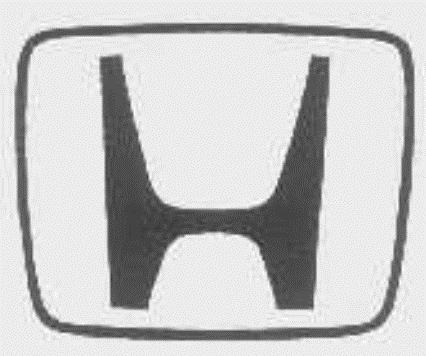Now in its twelfth year, Class 46 is dedicated to European trade mark law and practice. This weblog is written by a team of enthusiasts who want to spread the word and share their thoughts with others.
Click here subscribe for free.
Who we all are...
China’s SPC provides OEM guidance in Honda case
Ling ZHAO of the MARQUES China Team discusses the latest guidance from China’s SPC on the issue of trade mark infringement of OEM goods for exportation.
China’s Supreme People’s Court (SPC) has recently announced 10 significant cases and 50 typical cases, all intellectual property related. These significant cases and typical cases, though not binding on local courts, are important references to be taken into consideration when similar cases are tried.
One of the significant cases announced by the SPC this year is about trade mark infringement of OEM goods for exportation. The involved parties are Honda Giken Kogyo Kabushiki Kaisha and two local Chinese companies named Chongqing Hengsheng Xintai Trading Co, Ltd (Hengsheng Xintai Company) and Chongqing Hengsheng Group Co, Ltd (Hengsheng Group Company, an affiliate of Hengsheng Xintai Company, with the same legal representative).
Story of the case
Honda has obtained registrations for its HONDA trade marks, as below, in China, approved on the goods including vehicles, motorcycles, etc.
 |
 |
 |
| Registration number 314940 | Registration number 1198975 | Registration number 503699 |
In June 2016, Kunming Customs seized 220 motorcycle parts marked with HONDAKIT, which Hengsheng Xintai Company entrusted Ruili Lingyun Freight Co, Ltd to declare for export, with the total declared price of US$118,360, with destination in Myanmar.
The goods were produced by Hengsheng Group Company, authorized by Myanmar Meihua Company. The trade mark HONDAKIT is not registered in China. Honda filed a lawsuit with the Intermediate People's Court of Dehong Dai Jingpo Autonomous Prefecture of Yunnan Province on the ground that Hengsheng Xintai Company and Hengsheng Group Company infringed its trade mark rights.
After trial, the first instance court found that there was infringement, and Hengsheng Xintai Company and Hengsheng Group Company were ordered to immediately stop the infringement and jointly compensate Honda for damages of RMB300,000.
Hengsheng Xintai Company and Hengsheng Group Company appealed the decision.
The second instance court, Yunnan Higher People's Court, held that the accused infringing products were OEM goods for exportation purpose, and the acts of the defendants did not constitute trade mark infringement. The first instance decision was cancelled, and the claims of Honda denied.
Honda then applied to the SPC for retrial. After the retrial, the SPC decided to cancel the second instance decision, and to affirm the first instance one. In other words, the defendants are found to have infringed the trade mark rights of Honda.
Significance of the case
For a long time, OEM for exportation purpose has been an important foreign trade mode to stimulate China's economic growth. Trade mark infringement related to OEM has been widely discussed at home and abroad. There have been many cases tried at courts of all levels, and the judgments are inconsistent.
In this case, the SPC made it clear that the use of trade mark should be considered objectively, which involves analysing various aspects, such as affixing the trade mark to the goods and circulation of the goods in the market. The concept of trade mark use in various scenarios should be interpreted in accordance with the trade mark law consistently.
The unity of the trade mark legal system should be maintained, and the basic rules of trade mark infringement judgment should be followed, while the use of trade marks on OEM goods for exportation should not be simply taken as an exception of non-infringement of trade mark rights.
At the same time, a trademark that is not registered in China does not enjoy the exclusive right in China, even if it is registered in a foreign country. Accordingly, the "trade mark use licence" of a trade mark, which is not registered in China, is not protected by the Trademark Law of China, either, and such a defence against infringement should not be supported by the court.
OEM for exportation regarded as trade mark use
The issue concerning trade mark use on OEM goods for exportation has been long debated. We usually encounter this issue when responding to a non-use cancellation action.
It is now common practice that such trade mark use is regarded as effective and sufficient to maintain a trade mark right in defence against non-use cancellation. So if we obtain a trade mark registration in China, and only use it for production of OEM goods which are to be exported abroad, and not for sales in the Chinese market, we can keep the registration valid, by filing evidence of use, such as production contracts and customs declaration for export.
But in trade mark infringement cases, the use of trade mark on OEM goods for exportation used to be considered differently. In the PRETUL case ((2014) Zui Gao Fa Min Ti Zi No. 38 Civil Retrial Judgement by SPC ) and the DongFeng case ((2016) Zui Gao Fa Min Zai No. 339 Civil Retrial Judgement by SPC), decided by the SPC respectively in 2015 and 2017, the use of a trade mark on OEM goods for exportation was not considered use of trade marks, as the goods were never circulated in the Chinese market, and the trade marks were not likely to be associated to a certain source by the related public.
Based upon that reasoning, trade mark infringement was not established. But the present case now marks a change of opinion of the SPC on the issue of trade mark use for OEM for exportation.
Ling ZHAO is a trade mark attorney and attorney-at-law with CCPIT Patent and Trademark Law Offices and a member of the MARQUES China Team
Posted by: Blog Administrator @ 09.32Tags: SPC, OEM, Honda, ,


 Sharing on Social Media? Use the link below...
Sharing on Social Media? Use the link below...Perm-A-Link: https://www.marques.org/blogs/class46?XID=BHA4863

